
by dapp | May 23, 2019 | Blog, News
Green leafy vegetables provide essential vitamins and minerals that are important for a healthy diet. Garden Farming in Makoni has been doing just that. Families involved in the GAIA funded Farmers’ clubs program have been able to address food insecurity and improve the health of families by tackling malnutrition. Throughout the year families that established nutrition gardens have increased their resilience and prevented malnutrition .
Grace Mupoperi , a member of the Mabvazuva garden group has seen the benefits of nutrition gardens on the health of her 6 children “Gardens are a source of nutritious food for my children. I see that they don’t fall sick as often as they used to before I had my own garden. We grow different varieties of vegetables that even give us income as we sell them to others in the community ”
Farmers in the project organised themselves into 24 groups and they join their forces, ideas and resources so that they can further the agricultural production of each member. Families make use of seed sharing and organic manures which produce quality vegetable varieties. This coupled with adopting best farming practices methods such as crop diversification, compost making, mulching and crop rotation farmers are giving their families the much needed nutritional diversity.
Gardening farming not only contributes to household food security but it is also providing extra family income from the sale of surplus produce to the local community. Families with gardens usually produce more than enough for their families and the rest is sold and the income is used for medical expenses, school fees, savings and other home improvements requirements.
The Farmers club program funded by Gaia Movement aims to enhance 1 200 farmers’ resilience to current and future climate related shocks and protect the environment in Makoni district thereby making them food, nutrition and income secure all year round. This organised Farmers’ Clubs allow them to be better prepared against current and future climate change related shocks
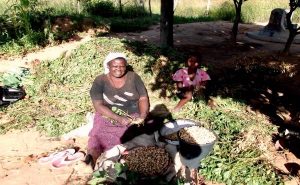
Bumper garden produce for the family

by dapp | May 17, 2019 | Blog, News
Mirriam Kwambana 47 lives in Mutasa district with her family. Like many rural families she used an open fire for her daily cooking activities. The process was both time consuming and had negative effects on her and her family’s respiratory health. After learning the benefits of firewood saving stoves from the Farmers’ Clubs Sustainable Lifestyle and Education program she decided to construct one for her home and has cut down her meal preparation time while using less firewood.
“Before having this firewood saving stove, I used to walk long distances to look for firewood and then endure hours of breathing smoke from the open fire which results in persistent coughing.
Mirriam is one of the 1000 Farmers’ clubs members who were part of the 10-Year Framework of Programmes on Sustainable Consumption and Production (10YFP) which aims to accelerate the shift towards sustainable consumption and production in both developed and developing countries.
Through this program Mirriam and many in her community are actively taking steps to turn the tide on global warming through construction of firewood saving stoves and planting more trees in their communities.
These small steps have had positive environmental impacts such as reducing the number and frequency of trees being cut down for cooking purposes. Because the firewood saving stoves use less wood and emit less smoke this reduces the amount of greenhouse gases released in the air
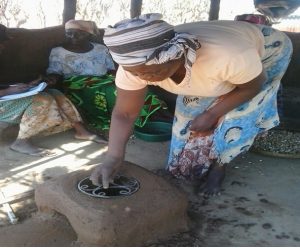

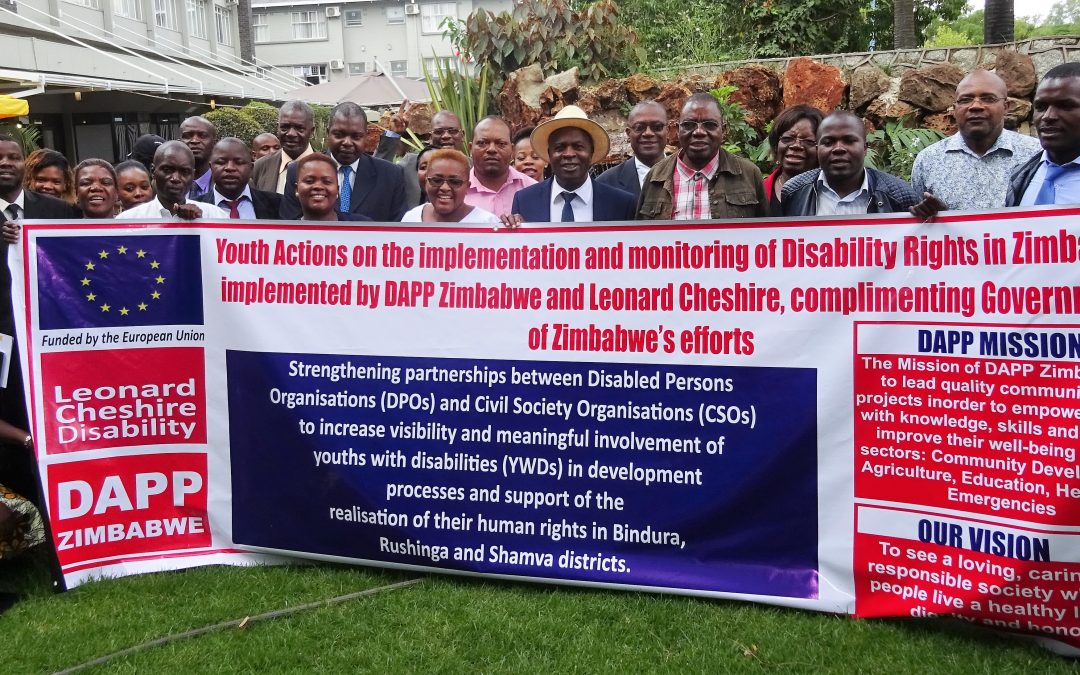
by dapp | Mar 28, 2019 | Blog, News
DAPP Zimbabwe and Leonard Cheshire Disability Zimbabwe officially launched the European Union funded Youth Actions on implementation and monitoring of disability rights in Zimbabwe program.
The launch event, attended by high level dignitaries set the tone for the work ahead to ensure inclusion and participation of youth with disabilities (YWD) in decision making. Speaking at the launch DAPP Zimbabwe Director Mathias Paradzai said “ DAPP’s experience in working at grassroots level provides the right starting point to strengthen partnerships between stakeholders to increase visibility and involvement of Youth with disabilities in development processes. The actions will empower these YWDs with knowledge about their rights as well as governance and leadership skills”
Leonard Cheshire Zimbabwe Director Greaterman Chivandire chimed in saying “ The implementation of these actions is expected to see increased access to education; health; employment and other livelihoods opportunities; political participation and social protection services for people with disabilities in the two countries in line with the Convention on the Rights of Persons with Disabilities ”
The action objective is to contribute towards the promotion, respect, protection and equal and full enjoyment of human rights and fundamental freedoms by all persons with disability in Zimbabwe and Zambia. In Zimbabwe the three year program will be implemented by DAPP in Bindura, Shamva and Rushinga districts benefiting 800 YWD while Cheshire Home society will be implementing the program in Zambia with 400YWD.

Official launch of Youth actions on Implementation and monitoring of Disability Rights in Zimbabwe
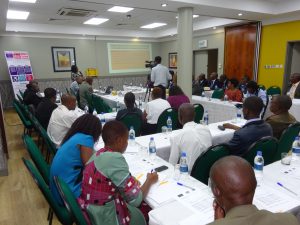
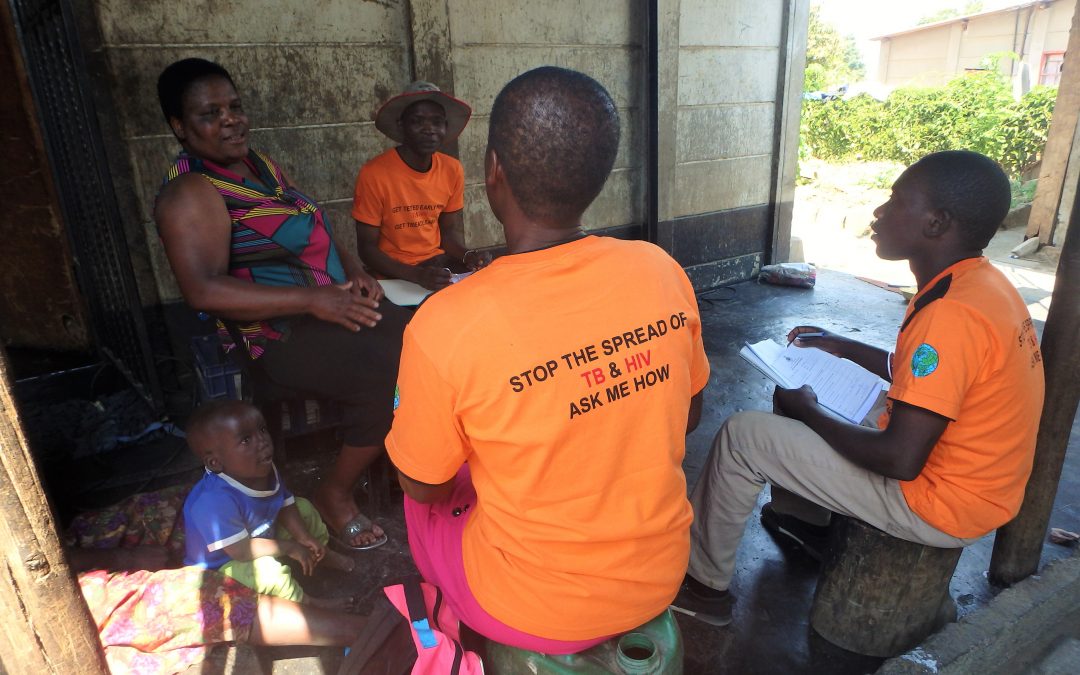
by dapp | Mar 25, 2019 | Blog, News

My name is Syprain Muzenya and I am a Field Officer working with TC-TB integrated program covering the Urban area of Makoni District .
Through the TB program, I found that actively supporting people who test positive for Tuberculosis goes a long way in ensuring that after they are initiated on treatment they adhere to it as prescribed by the doctor.
As a Field Officer, I engage trained community volunteers in that respective to spearhead the formation of a treatment buddy group (TRIO) to support the TB person to adhere to treatment.
The composition of a TRIO can be family members, a neighbor or one or two good friends. Together with the the trained community volunteers, we work side by side with the infected and affected family to stop the spread of TB. We urge family members to get screened for TB as they have direct contact to someone infected.
In order to stop the spread of TB we encourage that :
-
The house should have adequate ventilation
-
anyone who coughs should be educated on cough etiquette and respiratory hygiene, and should follow such practices at all times
-
while smear positive, TB patients should
- –spend as much time as possible outdoors
- –sleep alone in a separate, adequately ventilated room, if possible
- –spend as little time as possible in public gatherings or in public transport.
We also help the families establish vegetable gardens to improve nutrition for the family and patient. This initiative has worked well in my area, since we started the program in the District of Makoni. Since the inception of the program in Vengere, a total of 8 people were detected TB positive and all were initiated on TB treatment. Through TRIO system, 2 clients have successfully completed their treatment and are doing well. 6 people are still on TB treatment and they are being monitored by their TRIO supporters to ensure that they don’t default which can lead to the development of Drug resistant TB.
In other words I can say the establishment of TRIO support system re-enforces TB drug adherence and contributes to World Health Organisation strategy to end TB

by dapp | Mar 22, 2019 | Blog, News

DAPP hands over donations for Cyclone Idai victims
Development Aid from people to people has donated thousand of dollars worth of food and non- food items to the Government of Zimbabwe to assist victims of Cyclone Idai.
The good which include mealie meal,cooking oil,blankets, bathing soap, matches and dried kapenta was handed over to the civil protection services representatives at Manyame airbase collection centre.
DAPP Zimbabwe Country Director Mathias Paradzai in his condolence message said “DAPP Zimbabwe joins the nation in moaning those who lost their lives in this disaster and we wish a speedy recovery to those injured”.
He added that says the devastating effects of this disaster are far reaching and called for continued efforts from partners in government, business and the development sector. “We have a long road of rebuilding ahead of us and we need to continue working together to assisted the affected families”
According to the Zimbabwe Ministry of Information Publicity and Broadcasting Services a total of 139 people died with 144 injured and 189 still missing in Zimbabwe. Cyclone Idai is regarded as one of the worst tropical cyclones on record to affect Africa . The storm caused catastrophic damage in Madagascar, Mozambique, Malawi, and Zimbabwe
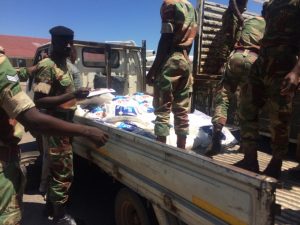
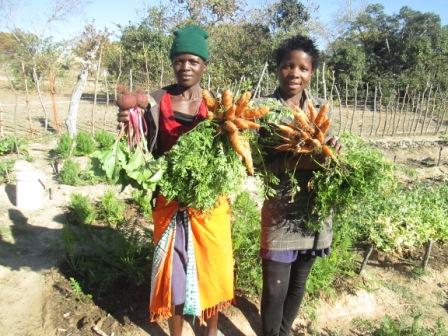
by dapp | Oct 29, 2018 | Blog, News
An economically empowered family positively impacts the lives of children especially young girls. In line with this statement Child Aid Zimbabwe through its first line of strengthening the economy of the family trains ,supports and empowers each family to increase its income through establishing income generating projects IGPs.
Research shows that girls in poor families have a higher chance of dropping out of school and pushed into early and forced marriages. The opposite is true in that when families are equipped with skills to establish and manage their income generating projects young girls will have equal access to nutrition, health and schooling opportunities
Families in the Child Aid projects organize themselves into Village Action Groups, that become the core of driving their IGPs that include nutrition gardens ,beekeeping, piggery, poultry, second hand clothing, sewing clubs and food outlets among other projects. Each Action Group consists of 30‐40 families who are organised together and meet every week for lessons and actions.
In the first half of 2018 Child Aid Zimbabwe achieved its aim of transforming families’ livelihoods so that they can be self-sufficient. The VAGs supported the revival of 33 group gardens soon after the rain season. A total of 3550 families were trained in the importance of having nutrition gardens for dietary diversity. Families responded positively and revived their household gardens and made sure that they had a minimum of 5 crop varieties.The gardens have become a source of income for families, such that they are able to meet their basic needs.
So far eighteen income-generating projects in agriculture, aquaculture, indigenous chicken, rabbits and horticulture were established with training and support from AGRITEX. The 3550 families from Rushinga, Bindura and Shamva districts were food secure.
Child Aid conducted 50 lessons on improving income and established 40 internal saving and lending clubs which are localized financial systems. Money from savings clubs have been used by families to engage in various income generating projects such as poultry and piggery. As a result of the income generating activities and ISALs, family financial positions have improved making it easy to pay school fees and caring for their families.














